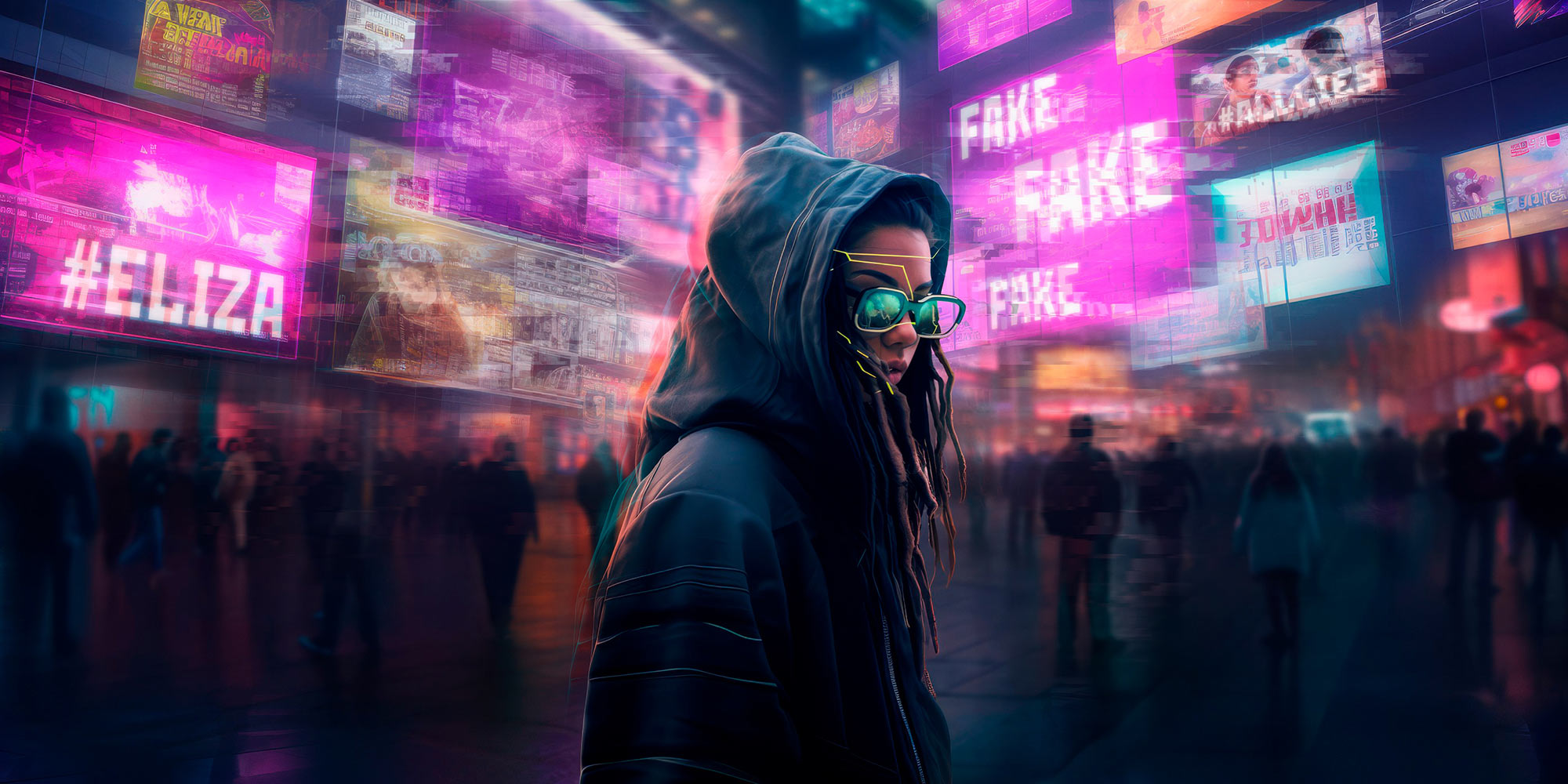Celebrating Social Impact Projects in Culture and Technology
This distinguished award celebrates projects and ideas that exemplify responsible usage of technology and actively contribute to the accessibility and impact of culture while fostering meaningful engagement between creators, distributors, and audiences. Embracing the powerful intersection of culture and technology, it aims to support initiatives that drive sustainability, encourage responsible technological advancements, and facilitate digital transformation within the cultural and creative industries.
The CultTech x Ars Electronica Award supports endeavors that harness the power of innovation and creativity to drive positive social change, not only on a local or regional level but also on a planetary scale. By spotlighting outstanding initiatives, this award underscores the need to responsibly utilize technology and resources, fostering inclusivity and promoting positive transformations.
Through this recognition, we seek to amplify the importance of social impact within the realm of culture and technology. We invited individuals, collectives, and organizations to submit their groundbreaking initiatives that exemplify the transformative potential of culture and the arts, while addressing critical issues, fostering inclusivity, and promoting positive change.
Jury Statement
Embracing the Truth
The CultTech x Ars Electronica Award 2024 is being held for the second time, showcasing a remarkable array of 147 projects from 40 countries. This year’s submissions demonstrated exceptional quality and diversity, reflecting a global commitment to leveraging technology as a catalyst for positive social change.
The jury was particularly impressed by the range of themes addressed, including wellbeing, personal data protection, social feedback mechanisms, and water environment protection. Each project exemplified a dedication to enhancing cultural accessibility and fostering sustainability within their respective communities.
A prominent trend in this year’s submissions was community-driven technological empowerment. Many projects provided tools that enabled individuals and groups to engage with their environments, capturing local issues through data collection and interactive design. Furthermore, the integration of gamification in cultural heritage emerged strongly, with several projects utilizing gaming to immerse audiences in history and culture, particularly appealing to younger generations.
Sustainability also featured prominently, with numerous submissions proposing innovative solutions to environmental challenges, emphasizing long-term ecological, social, and economic viability. Additionally, many projects explored inclusive citizen engagement, creating pathways for the public to actively participate in decision-making processes and contribute their perspectives in real time.
This year’s winning projects resonate with themes of truth and tenderness, addressing vital questions about how to distinguish reality from deception, navigate social barriers, and sustain empathy and connection in an increasingly complex world. The jury found these approaches particularly compelling, as they invite users to explore the most fragile aspects of human experience. The CultTech x Ars Electronica Award 2024, to be presented at the CultTech Summit in Vienna, not only showcases innovation and creativity but also highlights the vital role that culture and technology play in forging a more inclusive, empathetic, and sustainable future.
Jury members: Veronica D’Souza, Dmitry Aksenov, Gerfried Stocker
Winner 2024
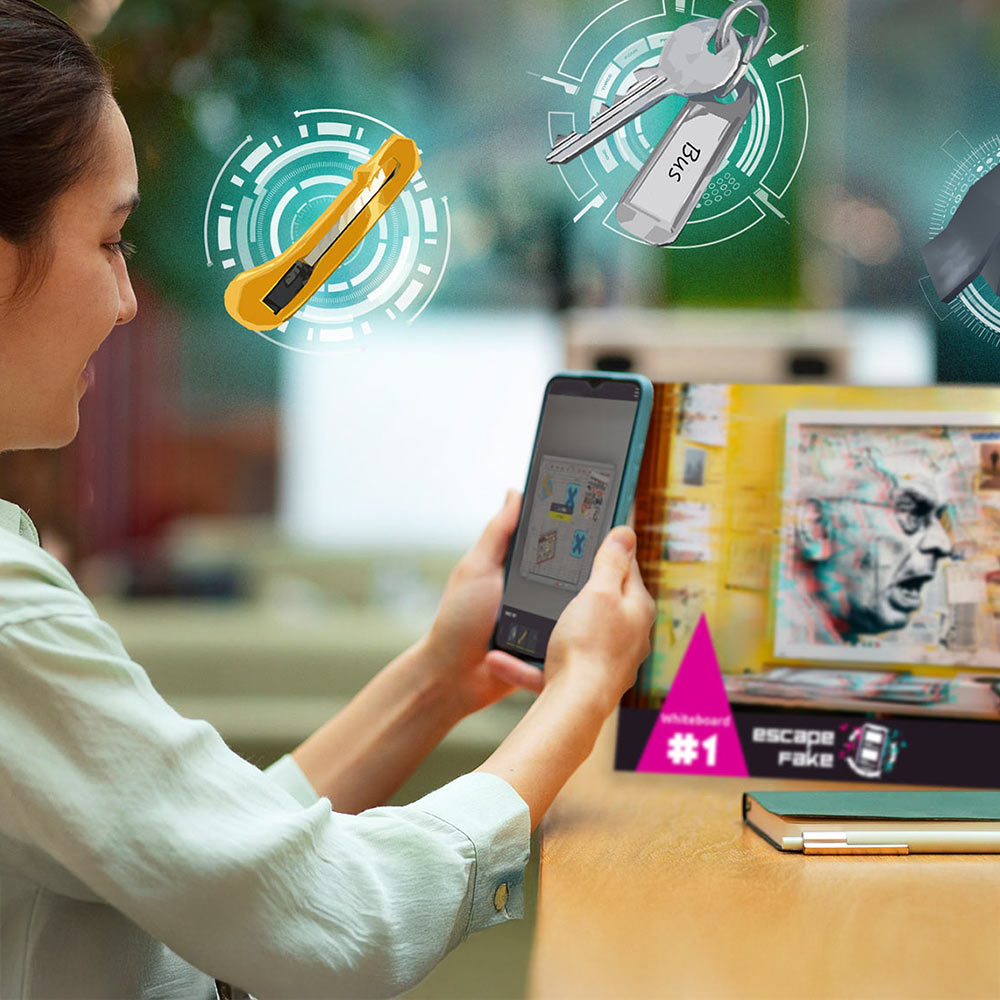
Escape Fake – Polycular (Irina Paraschivoiu (RO), Thomas Layer-Wagner (AT), Benjamin Arzt (AT), Julian Watzinger (AT), Tobias Hoffmann (DE)
Escape Fake is an immersive augmented reality experience that transforms media literacy education. By blending gaming, storytelling, and digital innovation, the project empowers young people and educators to critically engage with the digital world, debunk fake news, and tackle the global challenge of disinformation.
How can we effectively teach media literacy to young people in an engaging way amidst the growing challenges of disinformation? In 2018, we asked ourselves this question and, finding no clear answer, created Escape Fake: an immersive augmented reality (AR) experience that fosters critical thinking and media literacy skills.
In Escape Fake, players collaborate with a virtual guide—a quantum reality hacker—to debunk fake news and understand the impact of disinformation. Using an AR-powered escape room format accessible on phones and tablets, they solve puzzles that strengthen their ability to identify and counter misinformation.
From exploring a dystopian future museum to dissecting social media algorithms on the traces of a lifestyle blogger, the game blends digital storytelling and experiential learning.
Since its beginnings, Escape Fake has evolved into a broader ecosystem, with a toolkit, an online course for educators, and an exhibition that contextualizes the misinformation topics featured in the game. Blending playful learning with education, engagement and media art, we build critical skills needed to navigate the digital world.
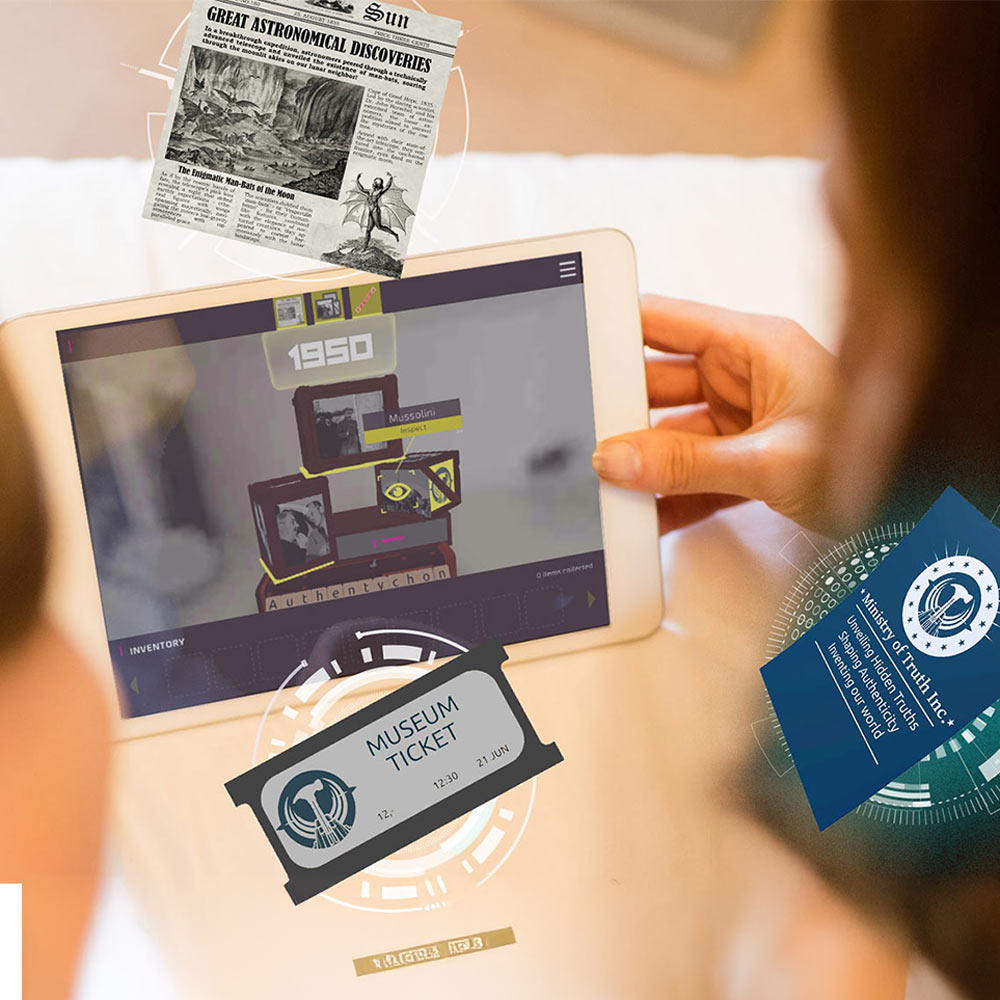
Credits
Escape Fake is co-funded by the European Union through the Creative Europe Programme and by the European Media and Information Fund managed by the Calouste Gulbenkian Foundation.
escapefake.org
linkedin.com/showcase/escape-fake/
https://www.facebook.com/escapefake.org
The jury is proud to award Escape Fake as the main winner of the CultTech x Ars Electronica Award 2024 for its innovative approach to enhancing media literacy among the next generation. In a world increasingly dominated by digital interactions, Escape Fake exemplifies an engaging method for young people to understand the complexities of truth—how it is presented, communicated, and challenged in the digital landscape.
The jury was particularly impressed by the project’s ambition to foster critical thinking as an essential skill for navigating online media. By leveraging the immersive qualities of gaming and virtual reality, Escape Fake addresses significant societal issues in a way that is both captivating and educational. This approach encourages a deeper examination of information, empowering users to discern fact from fiction. The team’s goal to expand the project to combat climate change disinformation further demonstrates their responsiveness to urgent global challenges. With a proven impact on human agency, community engagement, and democracy, Escape Fake stands out as a powerful tool against rising disinformation. The jury believes this recognition will support the team in further developing their project, leading to meaningful societal benefits.
Irina Paraschivoiu (RO) is a researcher, strategist, and innovation professional working at the crossroads of business, technology and creativity. Her work focuses on the involvement of users as co-designers in the fields of media literacy, collaborative extended reality and placemaking.
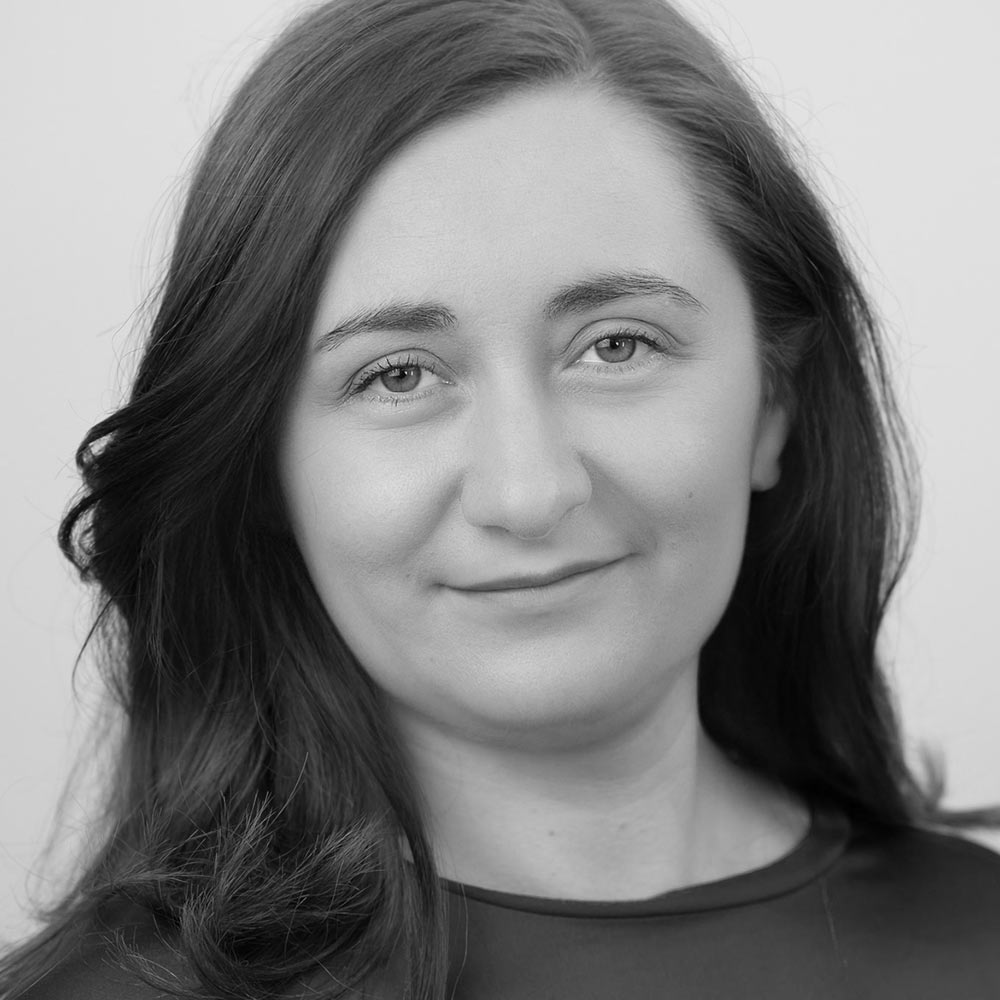
Thomas Layer-Wagner (AT) is a designer, edupreneur, researcher and builder of immersive, playful experiences with a purpose. He has helped innovation leaders improve storytelling and learning with augmented and virtual reality, and a playful touch, including for companies such as ORF, DOKA and Daikin.
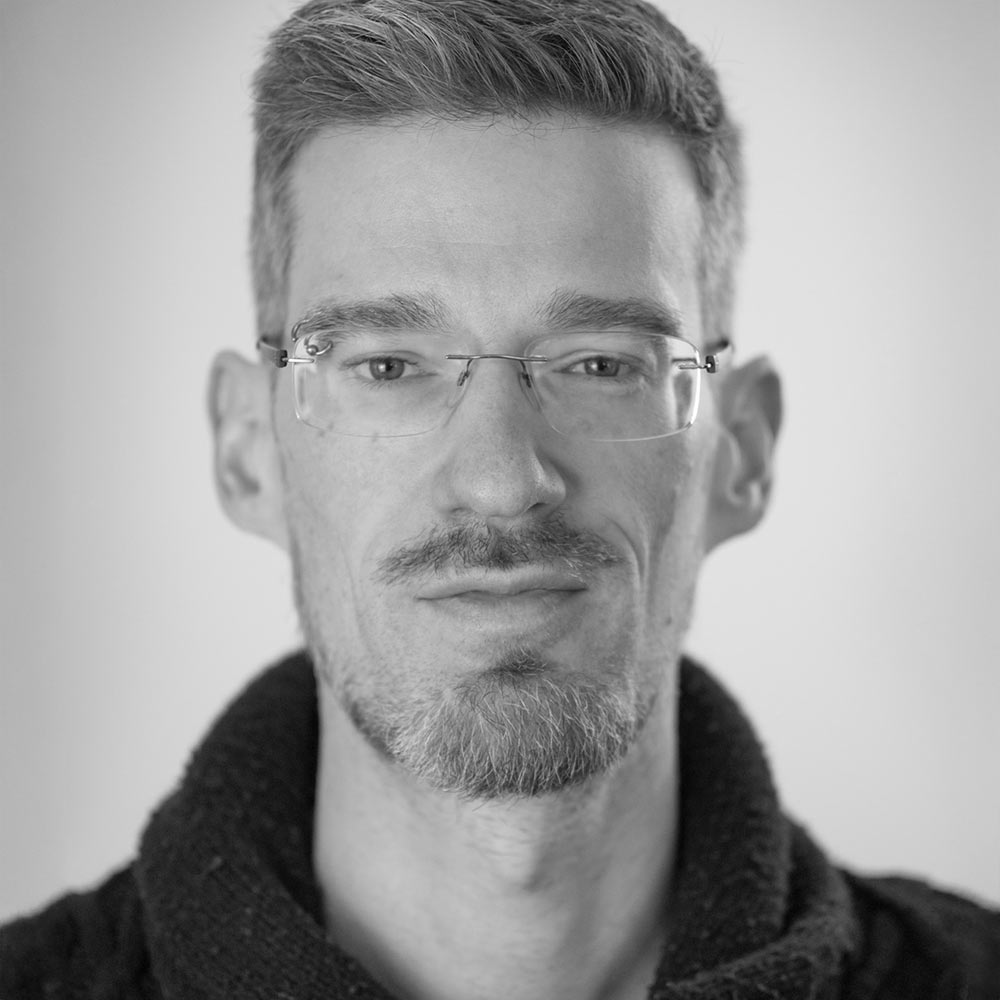
Honorary Mention 2024
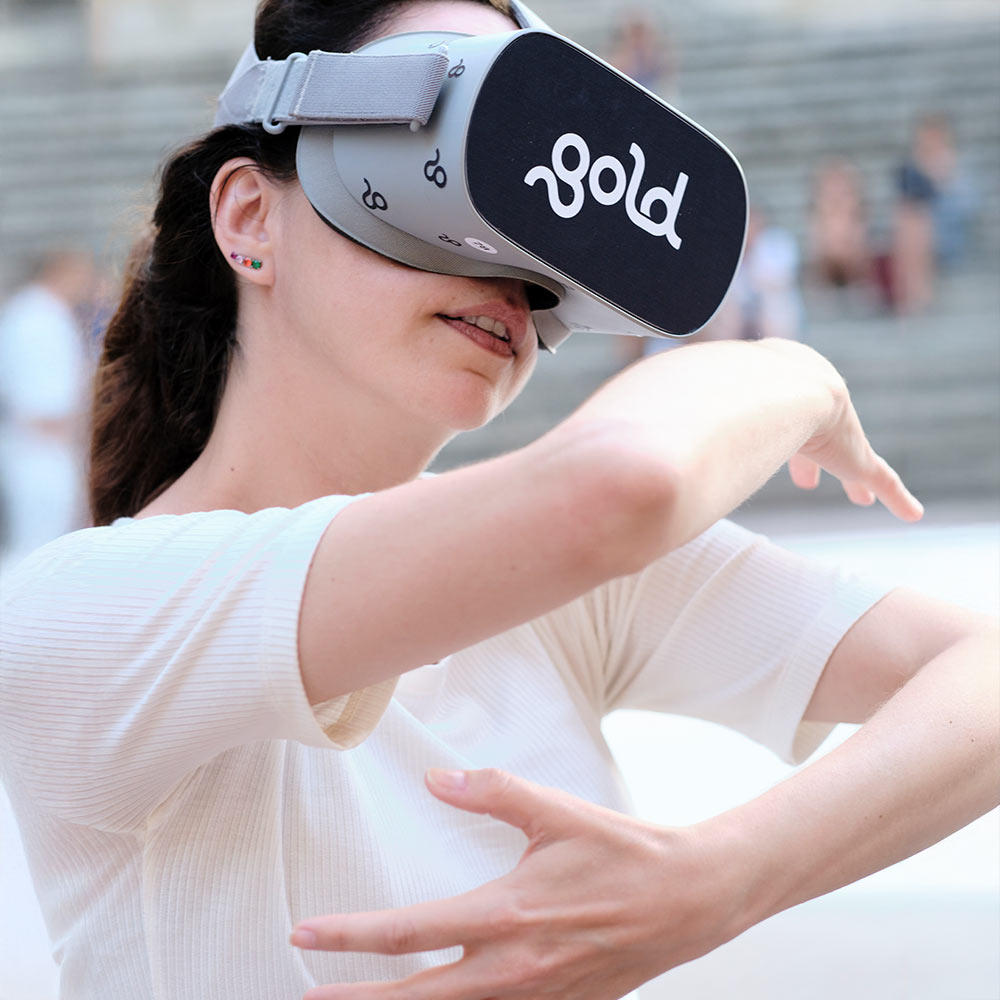
Embracing Places – Margherita Landi (IT), Agnese Lanza (IT)
There is something that touches us all when we let go of our resistance and share a hug. Embracing Places uses immersive technology and body practice to foster connection, solidarity, and appreciation of artistic and cultural heritage. The project actively involves residents and the unique landscapes of small towns, creating site-specific, community-based artworks that resonate with the emotional significance of each place, establishing an archive of different hugs and a network of towns.
Embracing Places explores how immersive technology and body practices can deepen connections within communities through a universal gesture: the hug. The core question is how technology can bridge emotional, social, and geographic divides by creating a collective experience. The audience participates in a 360° Virtual Reality experience, where residents of small towns are filmed performing simple gestures like hugging in meaningful local locations. Wearing VR headsets, users are invited to mirror these gestures, transforming their movements into a personal, intimate experience. Spectators without headsets witness the participants’ synchronized movements, creating a live performance that blurs the boundaries between the virtual and physical worlds. The project emphasizes the importance of preserving local culture and fostering empathy in an age of digital interaction. By highlighting the unique ways different communities express connection, Embracing Places aims to address issues of isolation and bring awareness to the cultural richness of underrepresented towns, creating a living archive of shared, universal gestures.
Credits
A project by Margherita Landi and Agnese Lanza
Co-design: Massimo Bevilacqua
VR concept and direction: Margherita LandiPost-production: Sasan Bahadorinejad and Cosimo Lombardelli
Production Siena Area: Giardino Chiuso (Italy)
with the contribution of MiC (Ministry of Italian Culture) PNRR funding of European Union– Next Generation EU
Partners: Imaginarius – Festival Internacional de Teatro de Rua (Portugal)
In collaboration with GOLD Enterprise and DIDA (Department of Architecture, University of Florence)
www.landilanza.com
www.margheritalandi.com
www.instagram.com/landimarghe
www.instagram.com/lanzaagnese
www.facebook.com/landimarghe/
www.facebook.com/agnese.lanza
Photo: Francesco Spagnuolo
The jury is honored to recognize Embracing Places with an honorary mention at the CultTech x Ars Electronica Award 2024 for its exceptional commitment to fostering community cohesion and cultural inclusivity through immersive experiences. The project mesmerizes with its ability to intertwine human connections and technology, enhancing the lived experiences of individuals within their communities.
By enriching the community’s perception of architectural and historical heritage, Embracing Places creates a safe environment for connection, creativity, and performance. Its use of human embrace as a means to preserve places is both poetic and transformational, speaking a universal language of empathy.
The jury commends the participatory nature of the project, which actively involves local citizens in co-creating a VR experience that highlights their unique cultural heritage. This initiative nurtures emotional well-being and innovation, inviting all to celebrate the richness of what already exists.
Landi Lanza (IT)
Margherita Landi (IT) is a choreographer, videomaker, and anthropologist. Agnese Lanza is a choreographer and dancer. In 2019, they presented “Tu-Torial,” exploring the relationship between body and screens. In 2020, they participated in Biennale College Cinema VR, and in 2021, they created “Dealing with Absence.” Their project “Peaceful Places” won the Auggie Award for Best Art in 2021. Their work merges performance art and dance, focusing on simple yet highly emotional gestures that resonate deeply with audiences.
Photo: Nuri Rashid
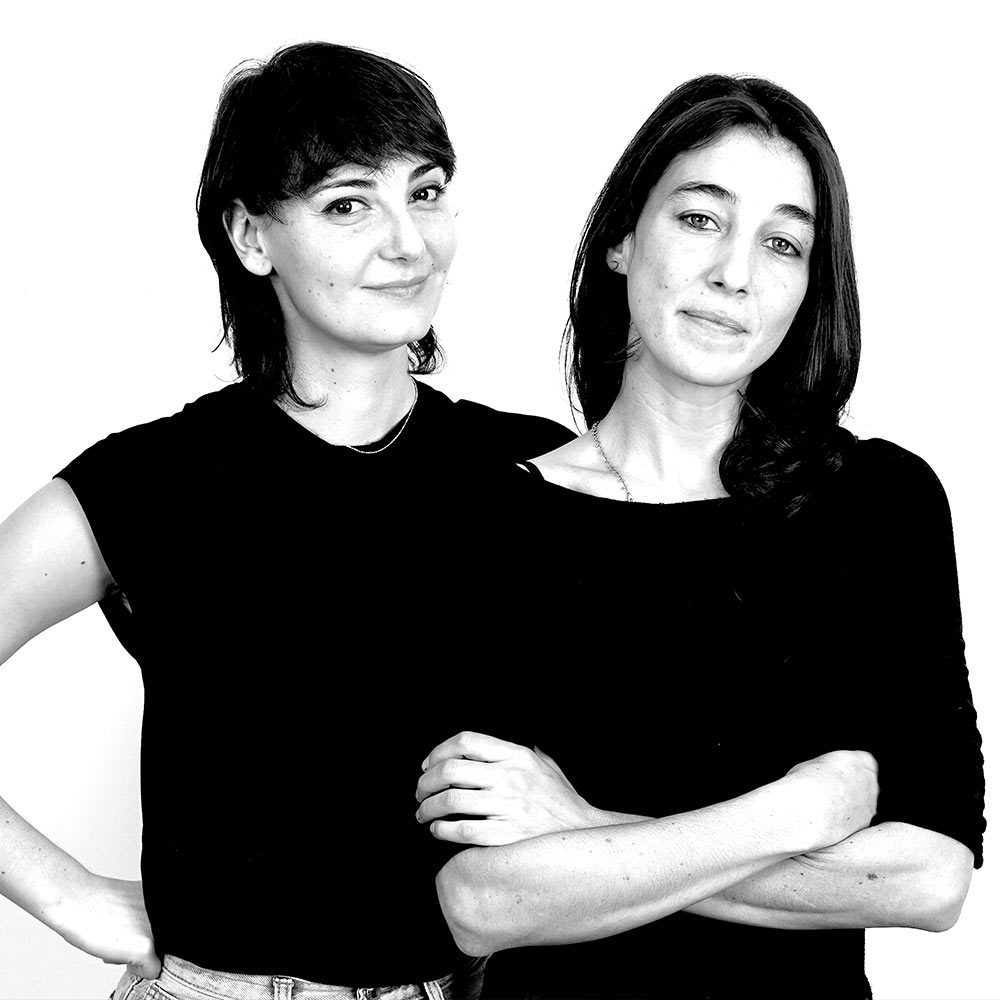
Jury members
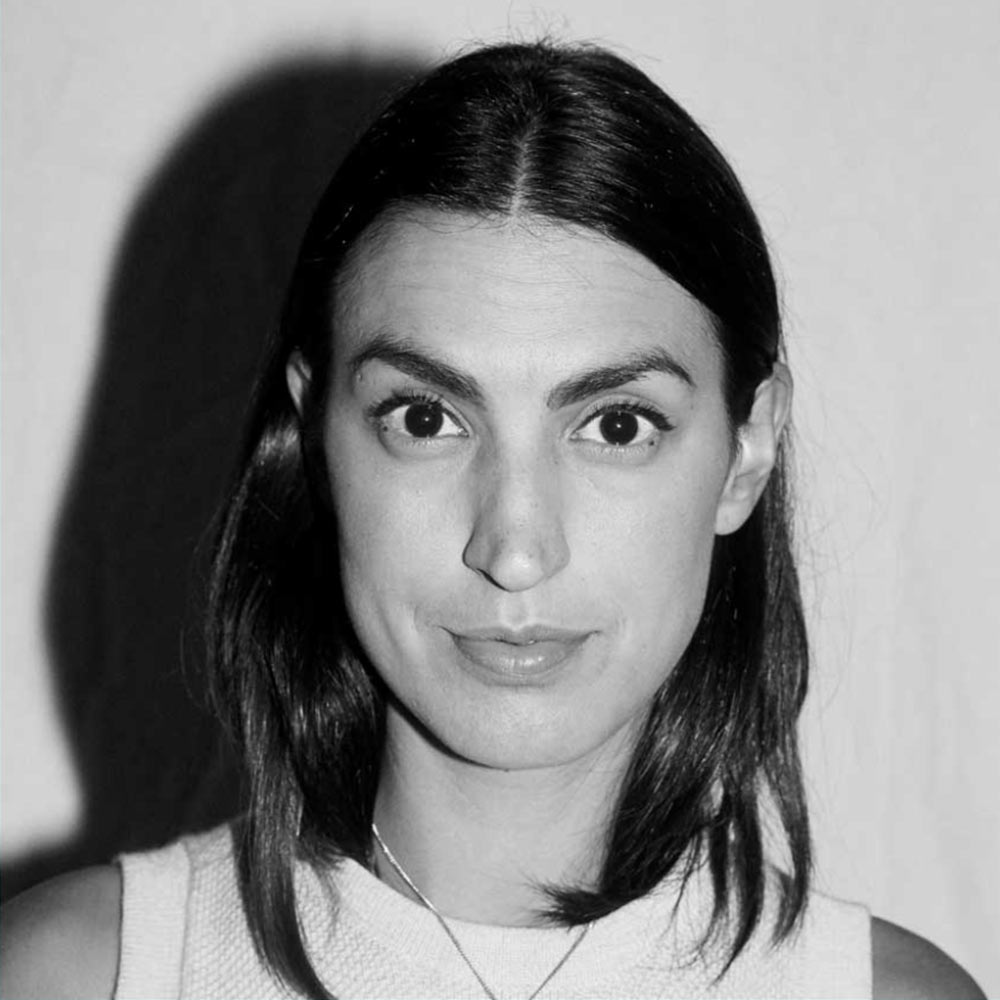
Veronica D’Souza (DK)
Veronica D’Souza is an award-winning social entrepreneur, multidisciplinary artist, speaker, and independent advisor. She co-founded CARCEL, a fashion label providing fair employment for incarcerated women, and Ruby Cup, tackling period poverty in East Africa. Veronica sits on the jury for the INDEX: Design to Improve Life Award and is a board member of The Danish Design Council and The Soulfuls. She holds degrees from INSEAD and Copenhagen Business School.
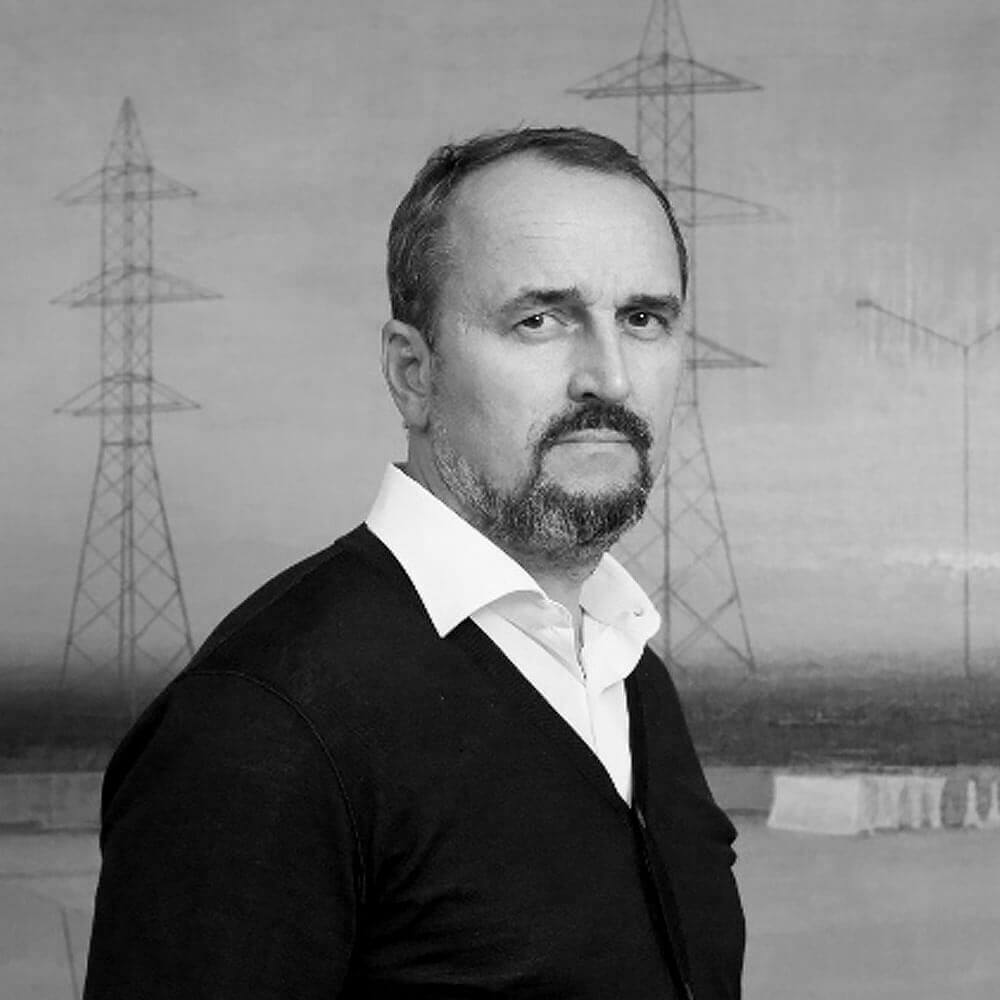
Dmitry Aksenov (RU)
Dmitry Aksenov was born in 1966 in Novosibirsk, Russia.
He studied Aerophysics and Space Research at the Moscow Institute of Physics and Technology. In 1999 he received an MBA in Strategic Management at the Russian Academy of National Economy and Public Administration. His business focus is in development of residential communities and investments in technology startups. Dmitry is a President of CultTech Association. He is a patron of the arts and culture, the founder of the Viennacontemporary Art Fair and Aksenov Family Foundation, the President of the Russian Society of Friends of Salzburg Festival, a member of the International Board of Palais de Tokyo. He is also the founder of the Vitiligo Research Foundation.
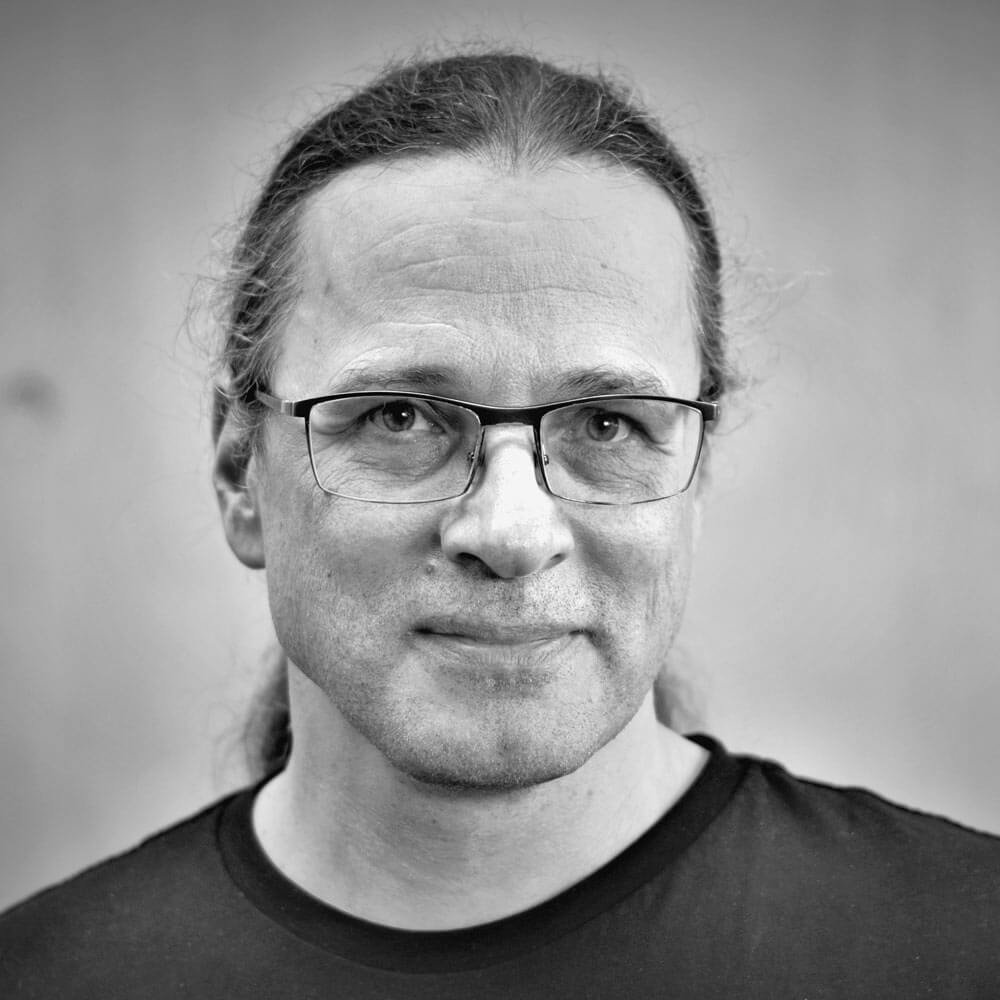
Gerfried Stocker (AT)
Gerfried Stocker is a media artist and an engineer for communication technology and has been artistic director and co-CEO of Ars Electronica since 1995. In 1995/96 he developed the exhibition strategies of the Ars Electronica Center with a small team of artists and technicians and was responsible for the setup and establishment of Ars Electronica’s own R & D facility, the Ars Electronica Futurelab. He has overseen the development of the program for international Ars Electronica exhibitions since 2004, the planning and the revamping of the contents for the Ars Electronica Center, which was enlarged in 2009, since 2005; the expansion of the Ars Electronica Festival since 2015; and the extensive overhaul of Ars Electronica Center’s contents and interior design in 2019. Stocker is a consultant for numerous companies and institutions in the field of creativity and innovation management and is active as a guest lecturer at international conferences and universities. In 2019 he was awarded an honorary doctorate from Aalto University, Finland.
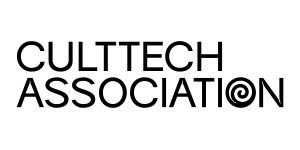
About the CultTech Association
The CultTech Association is a European non-profit organization dedicated to the intersection of culture (Cult) and technology (Tech). CultTech’s mission is to establish a global platform for entrepreneurs and initiatives that embrace the transformative power of technology in the creative industries.
In addition to the CultTech x Ars Electronica Award, CultTech cooperates with other cultural institutions, including the Salzburg Festival, Klangforum Wien and Viva Technology.
